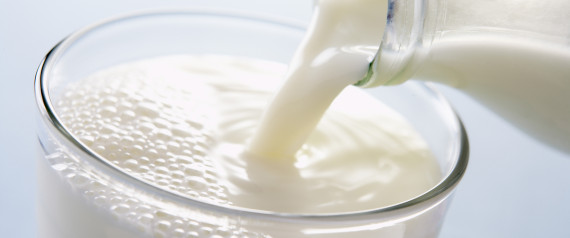
When I was growing up, my mom used to make me drink a glass of milk every morning. Millions of mothers all over the country follow this practice, and with good reason. Milk is, after all, considered to be a super-food. The problem is that a large amount of the milk in India is adulterated with substances from water to urea and detergent. While some adulterants just reduce the nutritional value, others can do some serious damage to people's health.
The Department of Biochemistry, Bhavan's Vivekananda College, Secunderabad, conducted a study on the different adulterants present in milk in Hyderabad. The study found that samples tested positive for sucrose, skim milk powder, neutralizers, salt, urea, formalin, hydrogen peroxide and detergents.
By allowing milk to be so easily contaminated, we endanger the lives and well being of hundreds of millions of children.
A 2011 study conducted by the Food Safety and Standards Authority of India (FSSAI) found that of the samples tested, 565 conformed to its standards, while a whopping 1226 failed to do so. The study also noted that samples taken from rural areas tended to fare better than those taken from urban areas, with non-compliance levels at 31% and 68.9% respectively. The study revealed that water is the most common adulterant.
The effects of the various adulterants used can vary from relatively mild, such as reducing the nutritional value of milk, to potentially fatal, like cancer. For example, milk adulterated with water would naturally be less nutritious than unadulterated milk. However, the potential side effects of ingesting urea include indigestion, diarrhoea, acidity, malfunctioning of kidneys, damage to the intestinal tract and digestive system, ulcers and impaired vision. Formalin is a solution made up of water and formaldehyde. Formaldehyde, incidentally, is chemical widely used to embalm human and animal remains. Formalin is added to prolong the shelf life of milk. Side effects of drinking milk adulterated with formalin include mood and balance alteration, liver and kidney damage, and abdominal pain, among others.
Detergents may also be added to milk diluted with water. This is done to mimic the foamy appearance of unadulterated milk. (Note: detergents may also end up in milk as a result of not properly washing the vessels and containers in which milk is stored.) Possible side effects of consuming milk laced with detergents include gastro-intestinal complications, hypotension, respiratory irritation and cancers.
Another common adulterant added to milk is urea, which is added to improve the whiteness of milk, and to improve its consistency. However, urea overburdens the kidneys as they have to filter out more urea content from the body.
Given the fact that milk is one of the most consumed food products in the country, it is essential to ensure that milk adulteration is eliminated. The dairy industry must be subject to stringent quality tests. I believe that every locality should have an authorized food inspector, who ensures that the provisions of the Prevention of Food Adulteration Act are properly implemented, and milk quality is up to the mark. By allowing milk to be so easily contaminated, we endanger the lives and well being of hundreds of millions of children in this country. We need to act now. There is no tomorrow when it comes to the health of our children.